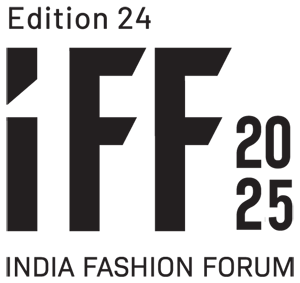Embark on a thought-provoking expedition into sustainability within the fashion industry with our new series on Images Business of Fashion. In this series, we traverse the intricate pathways of visionary brands committed to reshaping the narrative of fashion through sustainable initiatives. As we journey forward, we uncover the strategies and the profound ethos that propels these brands toward a greener, more responsible future.
In each installment, we unravel the layers of innovation, dedication, and conscious decision-making that define the leadership of these brands. From reimagining supply chains to championing eco-friendly materials, these trailblazers exemplify a paradigm shift towards a more sustainable and ethical fashion landscape.
This week, IMAGES Business of Fashion explores sustainability initiatives by UNIQLO, unveiling their innovative strides in reshaping the fashion industry.
UNIQLO was founded by Tadashi Yanai in 1984 with the ambition of selling clothes to express our individual uniqueness. With global headquarters in Tokyo, UNIQLO is the largest of eight brands in the Fast Retailing Group. The brand has more than 2,300 stores in 25 markets in including Japan. Since the launch of the first UNIQLO Fleece item in 1998, the brand has continued to attract fans all over the world thanks to innovations such as HEATTECH, AIRism, Ultra Light Down, Ultra Stretch Jeans, and many more.
The Power of Clothing: UNIQLO Partners With The U.N. Refugee Agency
In 2006, UNIQLO launched the All-Product Recycling Initiative, a global program that collects secondhand clothing donated from customers and delivers them to people in need. Working together with the United Nations High Commissioner for Refugees, UNIQLO today distributes secondhand clothes to people in need all over the world. To date over 16 million garments have been donated in 59 countries.
 Magic for All
Magic for All
UNIQLO launched MAGIC FOR ALL, a global collaboration with Disney Consumer Products in Summer 2015. The unique initiative will add a touch of Disney enchantment, Marvel action, Star Wars adventure and Pixar creativity to everyday UNIQLO LifeWear fashions as well as introducing innovative new products, pop-up displays, and in-store and online customer experience. UNIQLO’s Shanghai Flagship currently houses an immersive MAGIC FOR ALL shopping experience on its 5th floor.
Liberty of London
On March 18th, 2016 the London flagship located at 311 Oxford Street reopens as a UNIQLO LifeWear concept store. The newly designed store features UNIQLO WearHouse LONDON, a tribute to London’s heritage combined with modern elements. To celebrate the new store, the brand partnered with Liberty of London to create a collection featuring their iconic prints. It’s the best of English tradition and LifeWear combined.
Going Global
In Chicago, UNIQLO partnered with local organizations to create education programs for youths. The brand opened new stores in Belgium and USA in 2015.
The Sustainable World of Uniqlo
For UNIQLO, sustainability refers to social responsibility as the brand strives to change the world for the better via the power of clothing.
Fiscal 2030 Sustainability Targets and Action Plan
Making Good Clothes That Are Better for The Environment: For a more sustainable business, Fast Retailing has established an environmental policy that employs revolutionary technologies to reduce the burden on the global environment. In accordance with this policy, Fast Retailing positions climate change as one of its most pressing issues, upholding targets set out in the Paris Agreement, and acting to achieve carbon neutrality by 2050. In September, this year, the company announced its targets to reduce greenhouse gas emissions by FY2030. These targets have been approved as Science-Based Targets by the SBT initiative (SBTi).
To Reduce Greenhouse Gas Emissions by 90 % by FY2030: Reduce electricity consumption at stores through energy conservation initiatives, aiming for approximately 40% reductions at roadside stores and approximately 20% reductions at mall stores. By the end of fiscal year (FY) 2021, eight UNIQLO stores in Japan achieved Gold Level certification by LEED® (Leadership in Energy and Environmental Design), the most widely-used green building rating system in the world. To develop new, highly energy-efficient store formats, with an aim to launch a prototype store during 2023.
To Increase proportion of recycled materials to approximately 50% by FY2030: Since 2019, UNIQLO has increasingly introduced recycled materials. By 2022 Spring/Summer, about 15% of polyester used derived from recycled PET bottles. o 2020SS: Some DRY-EX Polo Shirt products employed recycled polyester. The company is expanding its introduction of materials that place a lower burden on the environment, starting with synthetic fibers such as rayon and nylon.
Ethical and Responsible Procurement of Raw Materials
Fast Retailing promotes ethical and responsible procurement of raw materials, establishing procurement policies for both plant and animal-derived materials. The brand’s waste reduction initiatives realize ‘Zero Waste’ early by reducing, replacing, re-using, and recycling materials used in the process of delivering clothes to customers.
Sustainable Initiatives
- Fast Retailing has pledged to source 50% recyclable materials for UNIQLO clothing by FY2030, as part of its broader sustainability action plan.
- About 15% of polyester used will be derived from recycled PET bottles by Spring/Summer next year.
- In addition to polyester, UNIQLO is introducing materials that place a lower burden on the environment, starting with synthetic fibers such as rayon and nylon.
- Fast Retailing also plans to reduce greenhouse gas emissions by 90% by FY2030 by switching all stores and key offices globally to renewable energy sources.
- The company aims for approximately 40% reductions at roadside stores and approximately 20 percent at mall stores.




